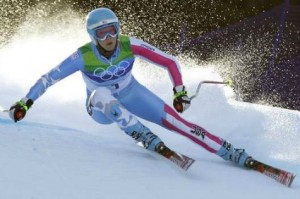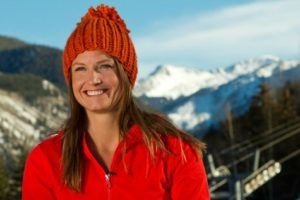At the halfway point in the 2014 Winter Olympics, American Alpine skiers are not faring well.
The results in Sochi: one medal – a bronze by Lake Tahoe’s Julia Mancuso in the super combined – is all the U.S. ski team has after Saturday’s women’s super-G.
After five of 10 alpine races, the United States has one medal! It’s a shame for the U.S. that injured Lindsey Vonn isn’t flying down the slopes of Sochi because right now the U.S. needs a skier to ignite the team.
Thanks in part to Vonn, at the 2010 halfway point of the Alpine competition at the Vancouver Games, the Americans had won seven medals: two gold, three silver and two bronze.
“We probably expected a little more (at Sochi) to be honest. But the Games aren’t over yet and we’re halfway there,” said United States Alpine Director Patrick Riml. “We still have some strong performers coming next week.”
Mancuso settles for 8th in super-G
A much needed strong performance didn’t arrive in Saturday’s super-G. Mancuso wasn’t up to the task, finishing a disappointing 8th on a tricky and dangerous course that was claiming skiers. U.S. teammate Leanne Smith of New Hampshire was 18th and Laurenne Ross of Bend, Oregon didn’t finish.
The super-G is a fast event that combines downhill skiing with precise navigation through a slalom course. The course was too challenging for many skiers – 18 of them did not finish.
Watching alongside the start gate, Mancuso admits she became hesitant after seeing so many others skiers struggle on the course. It led to a cautious, conservative run as the Squaw Valley skier finished 1.52 seconds behind Anna Fenninger of Austria, the gold medal winner.
Confidence lacking for Mancuso
“Super-G takes confidence and seeing so many people go down and have bad runs it took me back a notch in my confidence,” Mancuso said. “I left the gate wanting to ski well and not necessarily wanting to win. In my mind I wanted to win, but after I got down to the bottom of the run, it was definitely conservative.
“My last two races, I had conservative runs and wasn’t anywhere near having a medal,” added Mancuso, who also was 8th in the downhill. “But it takes everything coming together. It has to be that magical day.”
There was no magic for Mancuso on this day. She entered the event hoping to tie Bode Miller for most Olympic medals won by an American (5) Alpine skier. Mancuso has one event remaining – the Giant Slalom on Tuesday.
“I think there’s definitely some disappointment,” Mancuso said. “For sure, in the downhill I wanted to have a better race. And Bode wanted to do better (in his two events thus far). But it’s hard. There’s only three spots that you can get a medal and there’s tons of skiers out here who can step it up and have their best races.”
Women’s super-G Results
1. Anna Fenninger, Austria, 1:25.52
2. Maria Hoefl-Riesch, Germany, 1:26.07
3. Nicole Hosp, Austria, 1:26.18
4. Lara Gut, Switzerland, 1:26.25
5. Tina Maze, Slovenia, 1:26.28
6. Fraenzi Aufdenblatten, Switzerland, 1:26.79
7. Fabienne Suter, Switzerland, 1:26.89
8. Julia Mancuso, Squaw Valley, Calif., 1:27.04
More Alpine events coming up for U.S. skiers
Highly regarded U.S. skier Ted Ligety and Miller have a chance to win medals in the men’s super-G on Sunday. Ligety will be the one of the favorites in the men’s Giant Slalom on Wednesday.
Another serious U.S. medal possibility lies with Mikaela Shiffrin, 18, whose first event is the Giant Slalom on Tuesday. Shiffrin’s best event is the slalom, which takes place Friday.
“I think there’s a chance in every event left (for us) to have a medal,” Mancuso said.
Austria goes 1-2 in super-G
Fenninger won the women’s super-G and teammate Nicole Hosp took the bronze medal to give Austria four Olympic medals at the halfway point of the 2014 Olympic Alpine competition. The silver medalist was Maria Höfl-Riesch of Germany.